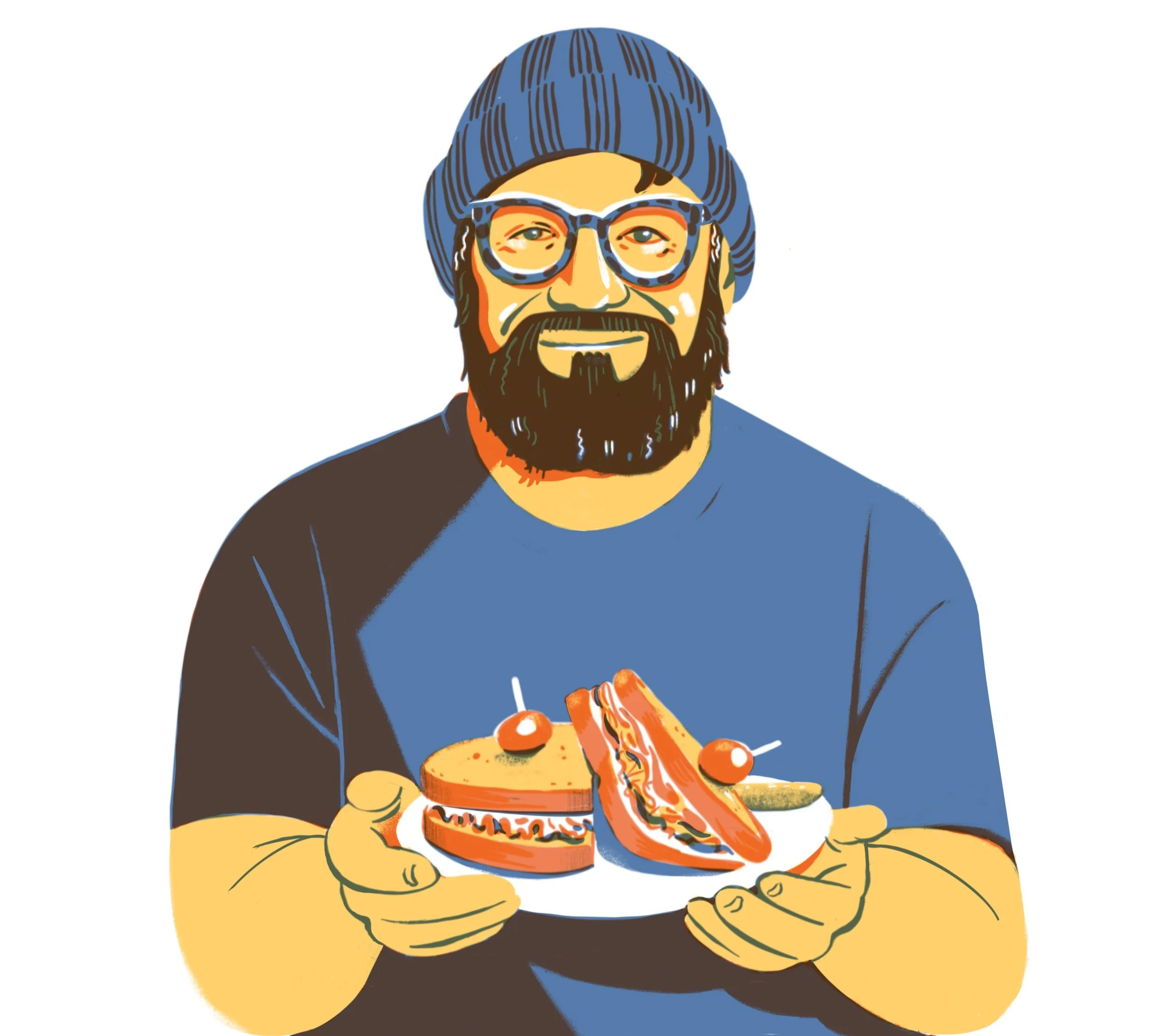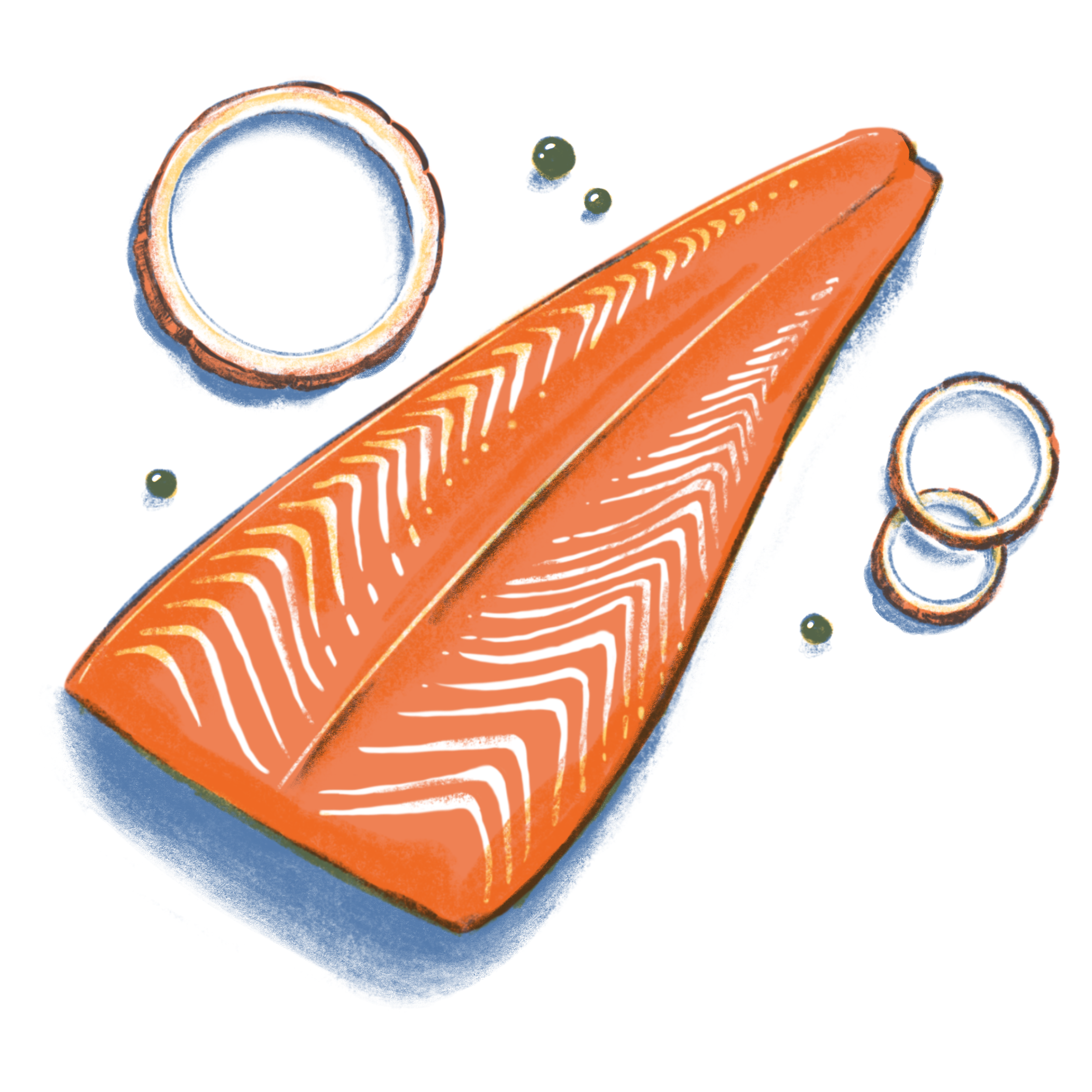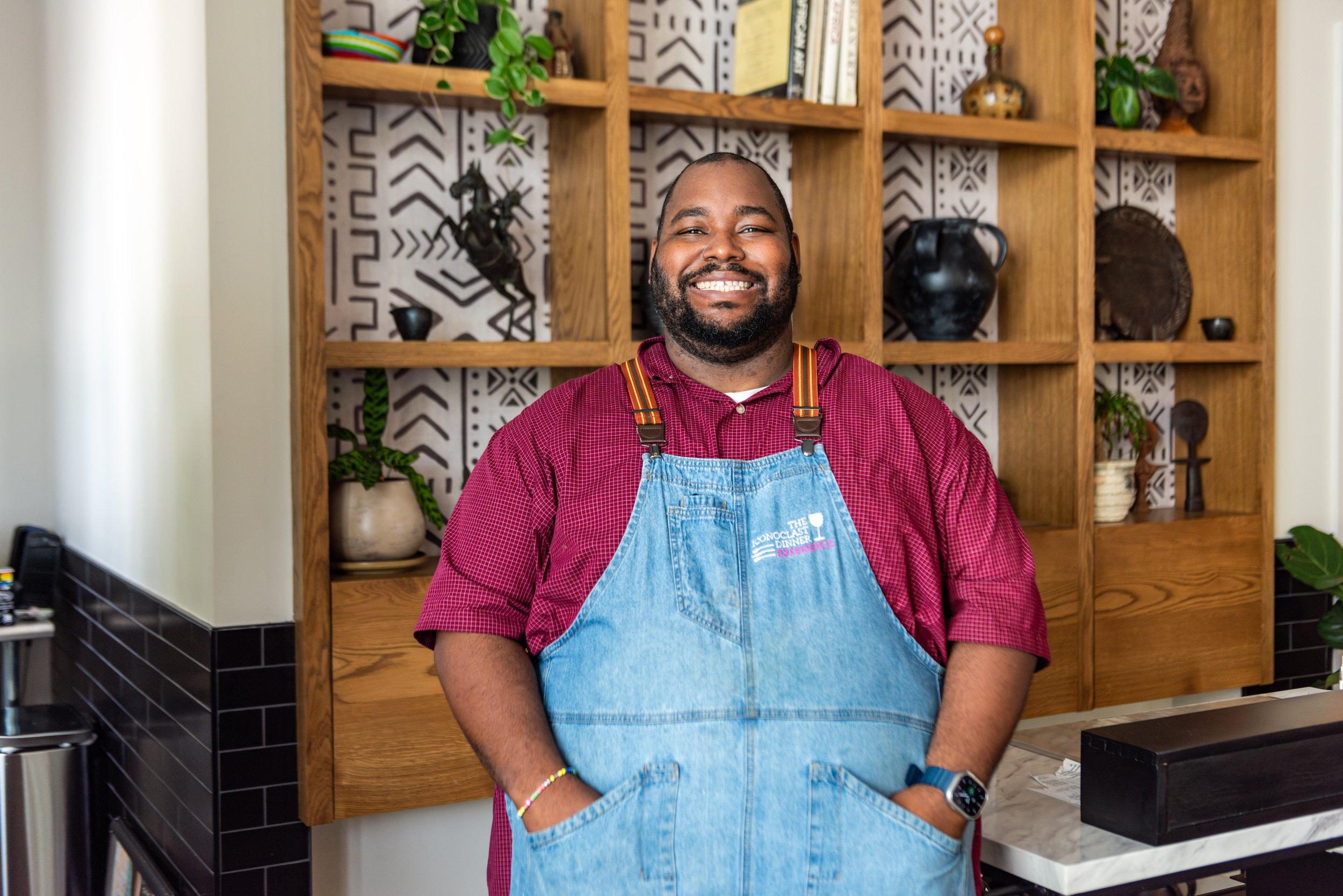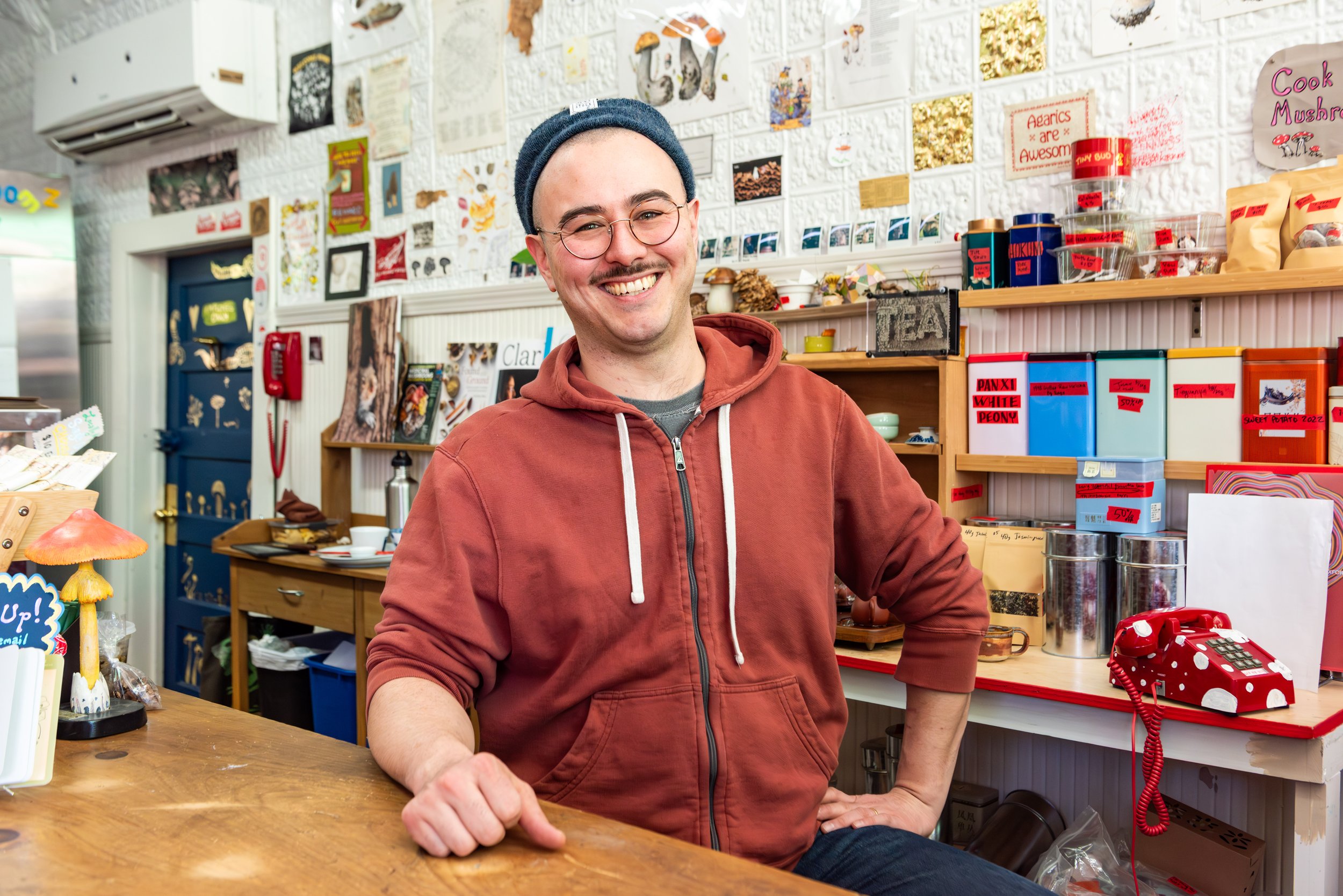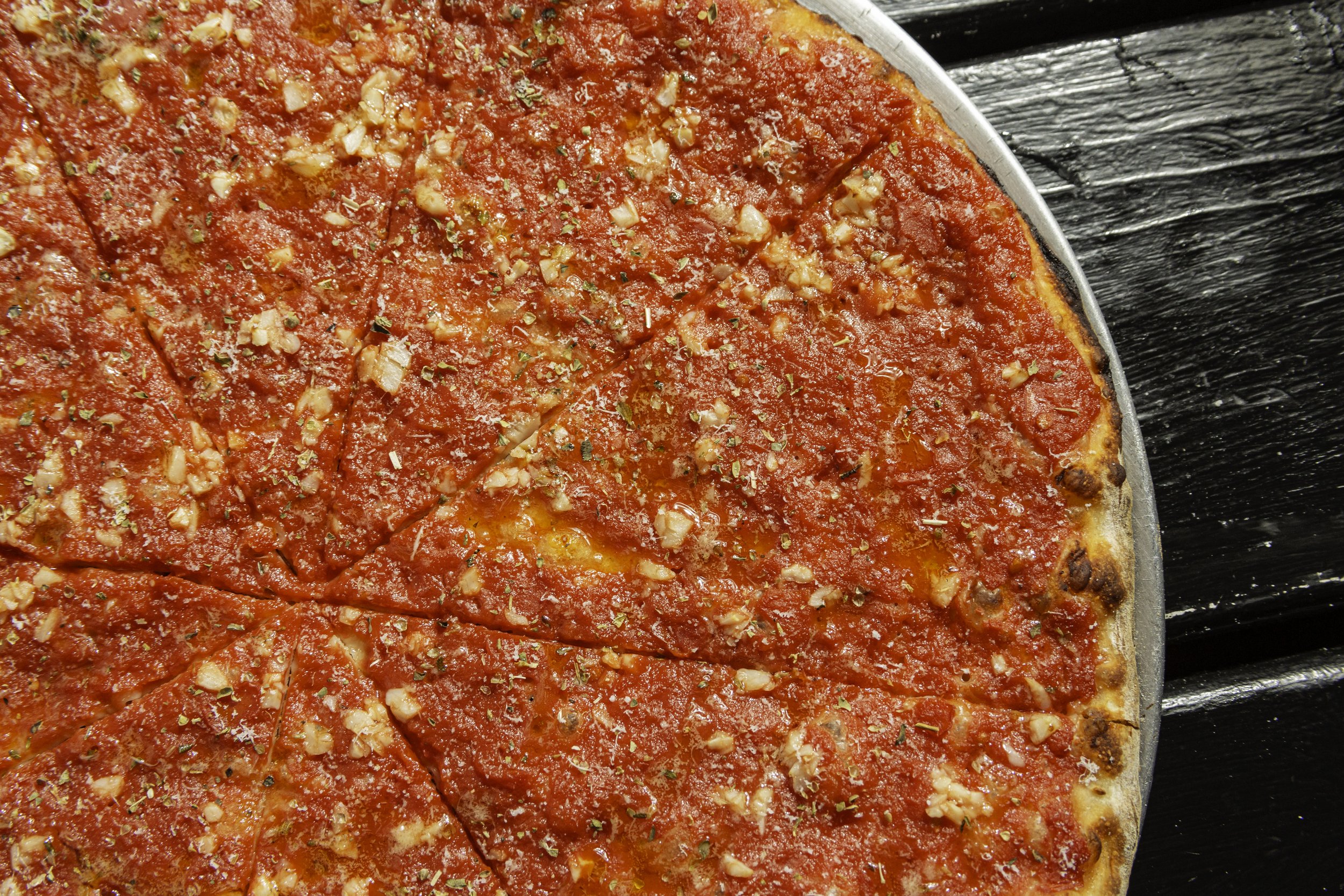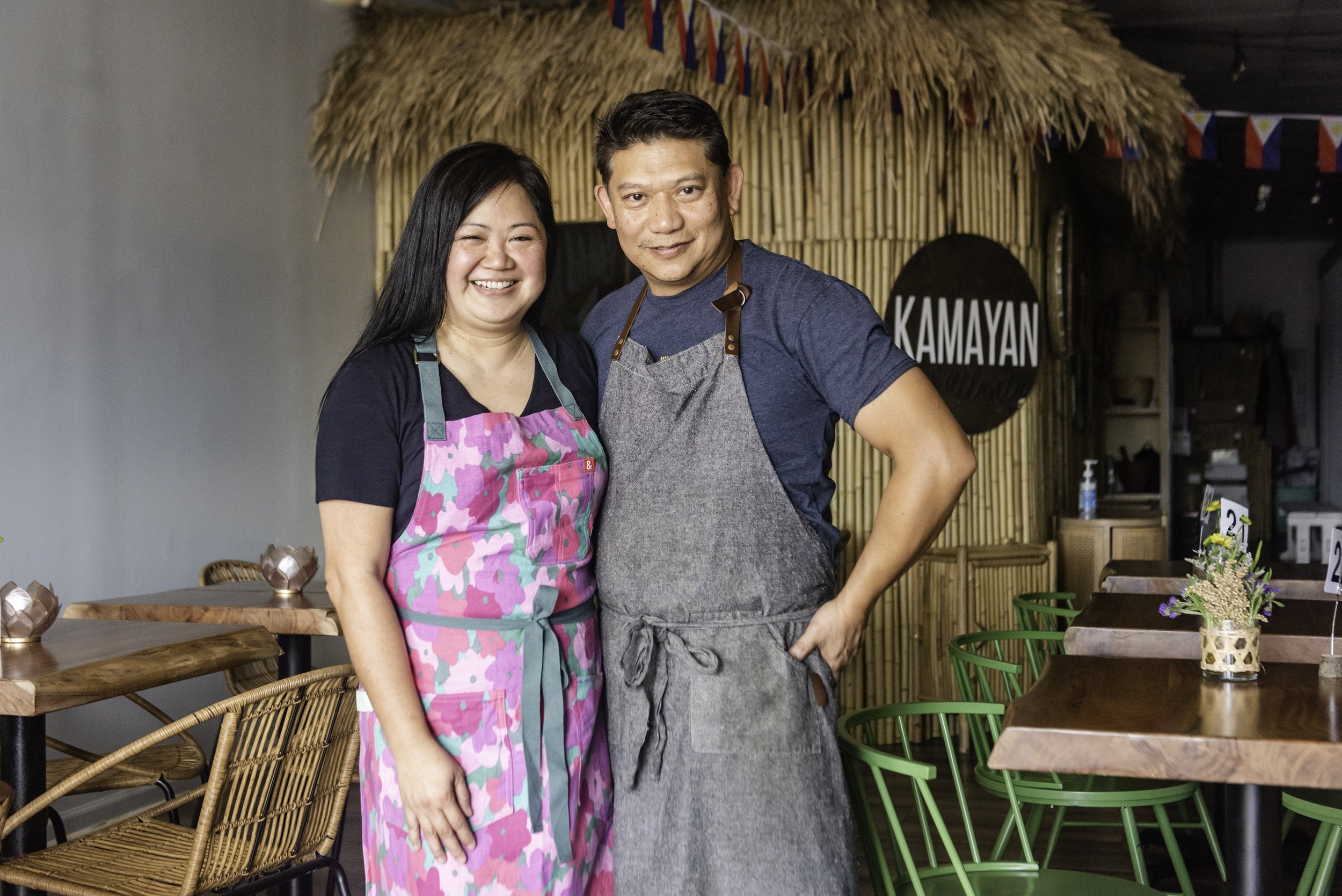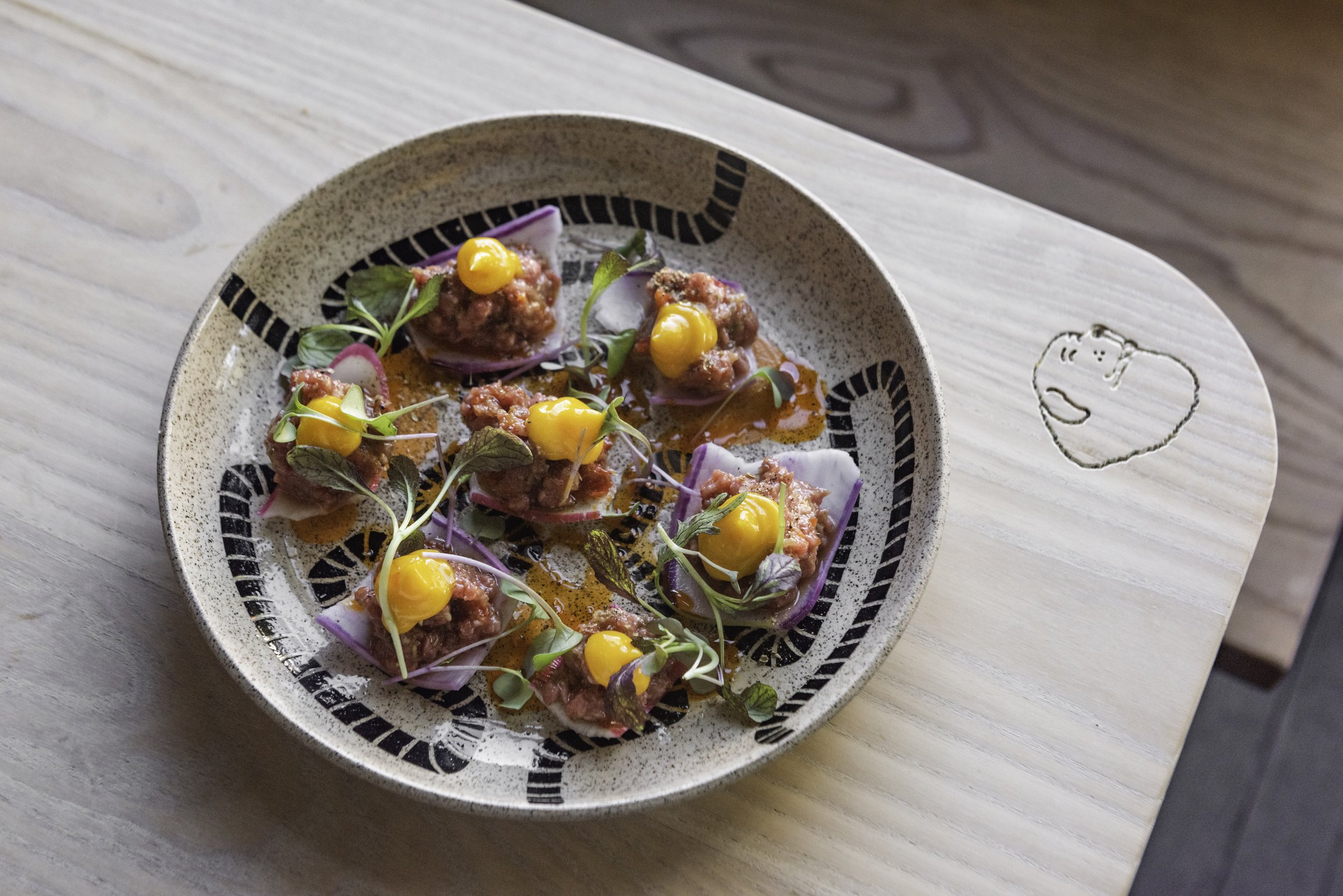Let There Be Lox
An interview with Chef Noah Jacob of Jacob & Sons
Noah Jacob loves smoked fish. And though he grew up within Portland’s Jewish community, it wasn’t until he moved to New York’s Lower East Side in his early 20s that he really became infatuated with the delis and appetizing stores that specialize in Jewish classics: silky, salty, and herbaceous smoked fish; rich and chewy chocolate babka; fluffy knishes; a stack of fatty pastrami and spicy brown mustard pushing two pieces of seeded rye bread to their absolute limit. And after 12 years in New York working in video production, and another few years in San Francisco running a corporate catering and events business, he returned to Portland in the midst of the COVID-19 pandemic.
Back home, Jacob looked to bring these foods to a Jewish community that he felt didn’t have those delis or locally made products that helped them stay in contact with their culture and heritage. And while many chefs in this situation would immediately jump to open a more traditional brick-and-mortar, Jacob didn’t: instead, he created Jacob & Sons, a smoked fish and pastry wholesaler with a catering arm, whose production facility is in the heart of Portland’s Pearl district. StarChefs talked to Jacob to find out why:
Will Hartman: How did you build your business?
Noah Jacob: “We started the business in October 2020 as a COVID-era supper club, then pivoted to Jewish deli manufacturer in April 2022. And at that point it was more experimental. We wanted to show people in Portland what our version of a Jewish deli was. Like, we may not be a pastrami manufacturer, but here’s our Reuben. We’ve spent time and money showing Portland what we can do, not just with the deli foods, but holiday food and catering menus as well. We wanted to create a business that would take restaurant chefs, pull them from the restaurant lifestyle, and give them a regular nine-to-five, but still allow them to be extremely creative and make high quality food. We’ve been around for a year and have gotten the chance to introduce ourselves to Portland—it feels like now is the time to streamline and focus on a few key products that we do well and can move in large quantities.
WH: Tell us a bit about your product: what makes it stand out in the Pacific Northwest market?
NJ: We have a line of smoked fish products. Three lox: regular ‘nova style,’ pastrami lox, and dilly lox (with a steelhead lox on the way). In the Pacific Northwest, you’ll find Norwegian, Scottish, or Native-style smoked salmon. Ours is cured in salt and sugar for at least three days, then cold smoked in a custom unit that we’ve built, and it’s all very hands on. We also do smoked sable in the Jewish style. We’re not trying to reinvent the wheel. We just want people to experience it like they would back East but with a locally made product. On top of that, on the bakery side, we sell korn caraway rye bread, braided challah, rugelach, cookies, and tahini and halva brownies for local distribution. It’s simple: pastries and fish. We’re essentially an appetizing company.
Illustrations: Miri Rooney
WH: You grew up in this city. Have you found that the local Jewish community, and the city at large, have received your business and your products well?
NJ: “I would say it’s been more of a partnership.We’re so blessed to have our community be so supportive. They were the first people to come out and find ways to get our products on shelves. We wouldn’t be here without them. And with the local synagogues, being able to provide catering for the Jewish lifecycle events and bringing these products to them lets us get out and meet the community.
WH: You talk about your time in New York being so formative for you. Why not try and work a concept like a Lower East Side deli into Portland?
NJ: “We thought that we could do a greater good to the Portland Jewish community, and really to the greater Pacific Northwest Jewish community in general, to become a wholesaler of products that aren’t available in lesser-served Jewish communities. We want to stay in business, and a lot of the time, you see that restaurants aren’t necessarily the most sustainable business model, so let’s start with a model that works for us, and grow from there. Starting a restaurant, doing catering and wholesale, they are just fundamentally different business models. We’ve learned a lot about building this brand: you can’t just put out a menu and hit on day one and have income. It takes more runway, equipment, and distribution. I think we’ve learned a lot, but the most important thing is the product, and we’re so proud of ours. We’re just chomping at the bit to get it to the next phase.
WH: What is that next phase? How do you plan to (pun intended) scale the business?
NJ: We’re opening a shop at the Oregon Jewish Museum and Center for Holocaust Education called Lefties. On a macro level, we’re really excited to show Jews of underserved communities and smaller towns that we exist and are here to provide them with products that they’re missing. If you’re a Jewish kid in Eastern Oregon and want to get smoked fish, you’re likely going to Costco and getting Scottish or Norwegian style, but it's just not the same thing. At the same time, plenty of non-Jews have those memories of New York and the East Coast, so we’re so excited to be able to introduce these products to them as well. Expanding that outward, in the next year we want our premium smoked fish products to go from 35 to 100 stores. Our ability to reach customers, Jewish or otherwise, is tremendous. We want our products to be in every bagel shop from Seattle to L.A. and east of that; all of the shops and restaurants that use smoked fish and rye bread.

